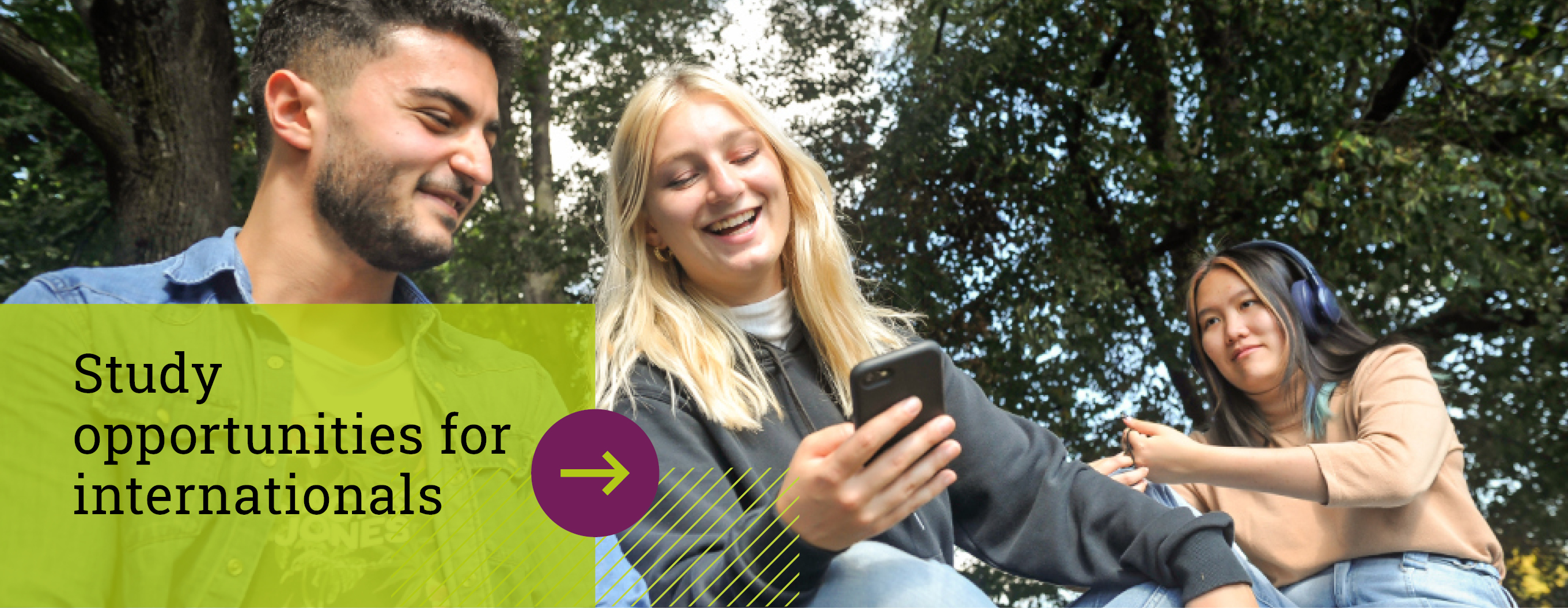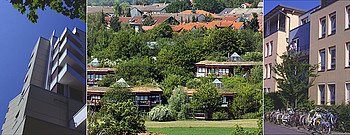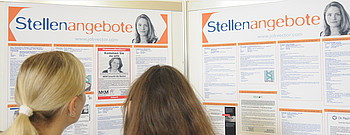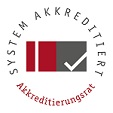Biotechnology (Master's)
We investigate the large world of microorganisms and enzymes
Biotechnology Master
Discover the fascinating world of microorganisms and enzymes for their usefulness in a modern society
In this interdisciplinary and research-oriented M.Sc. Biotechnology, we offer you the opportunity to expand and deepen your knowledge of the properties, production processes, and diverse applications of enzymes and microorganisms in the food, pharmaceutical, and chemical industries. Benefit from modern laboratories and pilot plants. You will become familiar with biochemical and molecular biological methods, including the purification, characterization, and immobilization of enzymes, enzyme kinetics, gene expression, and mutagenesis of recombinant enzymes. In addition, you will develop microbiological expertise in handling pathogens in food production.
- Advanced laboratory experience
- Excellent career prospects
- Reasons to Choose Hohenheim
| Degree Master of Science (M.Sc.) |
4 semesters 120 credits |
Language English |
University places 22 |
Location Stuttgart |
|||||
The semesters are divided into four block modules of four weeks each, giving you the opportunity to devote yourself intensively to a specific subject area. In a block module, you will deepen the knowledge you have acquired in the lectures, seminars, and practical courses. The modules usually conclude with an examination on the Friday of the fourth module week. The block periods are organized uniformly in the Faculties of Agricultural Sciences and Natural Sciences, which allows you to design your schedule of modules in an interdisciplinary manner. The block periods mean that you have no exams or other obligations during the time between semesters and can organize them as you wish.
You can find information about the individual modules in the module catalog.
During the first semester...
... you will acquire advanced knowledge of microorganisms, proteins, biocatalysis, genetic engineering, and analytical methods. You will immerse yourself in the world of food microbiology, the cultivation of recombinant strains, product formation using whole cells or their enzymes, and receive a comprehensive introduction to the associated research strategies.
In the second and third semesters...
you plan your studies according to your individual interests and your desired specialization. For example, you can focus on enzymatic production processes and their use in industry or on food microbiology and the reproduction of microorganisms. Whatever individual orientation you choose for your studies, it is certain that you will be steadily introduced to independent research from the second semester onwards.
You can use the third semester for a stay abroad or an internship before completing your studies in the fourth semester with a research-intensive Master’s thesis.
Here you have all the freedom you need to make the most of your time at university!
In your Master's thesis ...
... you will have the opportunity to work in a team on current, experimental research projects. This not only enables you to apply your acquired knowledge and expand your practical skills, but also to make a creative contribution to innovation in biotechnology.
You want to find out more?
For detailed information on the timescale and structure of your studies, you can find this on this page in the Downloads section.
Study objectives
As a “Hohenheim biologist” you are able to:
- develop complex biotechnological production processes in life science companies.
- discover new ways of using enzymes and microorganisms sustainably in the life science industry.
- implement current molecular biological and biochemical methods in innovative problem-solving strategies
- modify current methods if this is necessary to solve a specific task
- contribute your interdisciplinary knowledge to the various areas of the food, pharmaceutical, and chemical industries.
After your studies, you will be ready to shape the future of the food, pharmaceutical, and chemical industries! Where could you go from here?
- Collaboration in research groups at renowned national or international research institutions
- The world of life science is open to you in research and development, project management, quality assurance, or technical management in companies at home and abroad:
- Large, medium-sized, and small companies as well as start-ups in the life science sector
- White biotechnology companies, e.g. precision fermentation
- Health care business consulting - Business consulting
- Data science companies
- Small degree program with excellent student-faculty ratio
- Links between research and teaching
- Modern labs with cutting-edge technology
- Technical test facilities with pilot plants for research and teaching offer the chance to develop and test new production processes
- Possibility to include modules in the related disciplines Biology and Nutritional Science
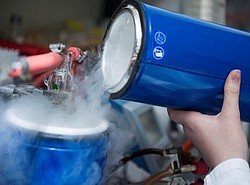
The Master’s program Biotechnology is embedded in ongoing research projects at the Institute of Food Science and Biotechnology. Together with the Institute of Food Chemistry and the nutritional science institutes, our interdisciplinary expertise covers all aspects of food systems and their analysis.
Specializations of our scientific staff include, for example, food microbiology, food biotechnology, food analytics, food chemistry, and food sensors.
Research Focuses
There are two major research focuses in the area of food science, biotechnology, and food chemistry in Hohenheim:
The focus “safe and technological treatment of food systems” combines research activities on the links between food ingredients, microorganisms, and enzymes with the technological processes used to produce them. The experimental research in this area concentrates on the behavior of individual substances during production and the reactions of substances with and in the complex food matrix as well as food contact materials.
The second research focus “producing functional food substances” includes activities that look into the viability and safety of new substances and additives in food production. Our research in this area aims to increase the quality of food, but also to develop new and innovative food products that offer advantages to specific consumer groups.
Cooperation
So that we can continue to expand our successful, ongoing research projects and to create sustainable synergies, we collaborate intensively with our excellent partners:
- Technical University of Munich
- Karlsruhe Institute of Technology
- German Institute of Food Technologies (Osnabrück)
- Max-Rubner Institute
| Application deadlines | |
|---|---|
| 1st subject-related semester | Only for the winter semester: 15 June (Note: due to the time-consuming visa procedures, we recommend applying by May 15) |
Higher subject-related semesters | Winter semester: 15 June |
| Requirements | |
|---|---|
| Formal requirements |
|
| Language skills | English B2 |
| Pre-study internship | No |
| Selection procedure | |
|---|---|
| Selection criteria |
For details, see the Admission Regulations |
| Selection interview | No |
| Please take care of housing early on and in parallel with your application. You can find all further information on the Housing page. | |


